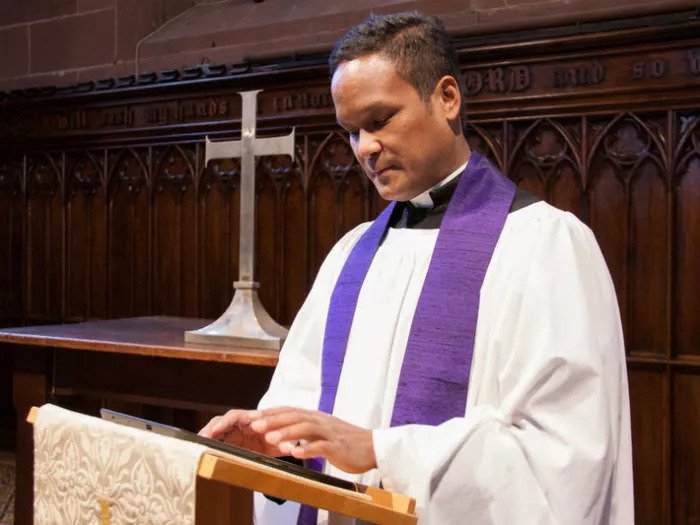
Coming Face to Face with the Fact and Controversy of Election
December 6, 2023
In August 2001 a new youth minister was hired at my church. As an ordained minister he would sometimes preach when the pastor was away, and one Sunday night he preached on election. He presented the Calvinist view that God chose who would be saved and did not at all try to offset that or reconcile that to the universal offer of salvation in John 3:16. After the sermon I went up to him and asked why he didn’t reconcile election to John 3:16. His reply was astonishing – he said it could not be reconciled. I told him that was a cop-out. Intuitively, I knew there had to be a reconciliation, and I went home with a mission to search the scriptures myself to reconcile it. After studying the issue, I wrote the youth minister a letter with my reconciliation of election and John 3:16.
He responded to me a couple of months later in a letter, and I responded to his letter a few months later after considerable evaluation and research of his points. He didn’t respond in writing to my second letter, but he later acknowledged that it impacted his thinking. In my understanding of God, the notion that He would choose unconditionally to save some and not save others is profoundly offensive to His character. If God did choose unconditionally to save people, He would save everyone for scripture says He does not wish anyone to perish but for all to come to repentance (2 Peter 3:9). Election is in the Bible, but the Bible repeatedly gives the condition for being elected – belief/faith in Jesus Christ. Contrary to what some suggest, this is not the same as God waiting to see who believes and then choosing them. God chose them when He chose the means of salvation – by God’s grace through one’s faith in the person and work of Christ on Calvary. God set the condition before any human was born, and then the elect are those who meet the condition – hence, conditional, not unconditional election.
In researching election, I read John Calvin’s Institutes of the Christian Religion – specifically the sections on election. Calvin famously gave a five-point summary of his view of election. The five points are remembered using the word acrostic TULIP. The letter “T” stands for total depravity meaning unregenerate man is totally depraved. The “U” stands for unconditional election. The “L” stands for limited atonement meaning Christ died to pay for only the sins of the elect. The “I” stands for irresistible grace meaning, when God unconditionally elects you, you cannot resist and you believe in Christ. The “P” stands for preservation of the saints meaning, since God unconditionally, irresistibly elected you, nothing can make you lose your salvation. Calvin’s TULIP view has been debated ever since he gave it, but many mainstream evangelicals hold that view.
Calvin openly stated the implication of unconditional election. He pointed out that not electing some was, in effect, “reprobating” them, although he said that was simply the result of God letting them receive justice – the condemnation due them because they were sinners. The difference between Calvin’s view and mine is that I believe one is reprobated because they refuse to believe in God and the Lord Jesus Christ – which would be a just reprobation. After all, belief is something God gives all men the capability to do. On the other hand, because man is born into the world with a sin nature, all of us end up as sinners. Scripture says no one is righteous – all people have sinned. Thus, it is impossible for a person to live a sin-free life. Therefore, for God to reprobate someone because they didn’t do something it was impossible for them to do would violate God’s just nature. It would also give man the perfect excuse – being sinless was not within his capability and therefore was impossible to do. Therefore, how could he be held accountable? The apostle Paul made this point when he said that men are “without excuse” because God has revealed Himself to them and made Himself evident to them (enlightened and drew them), yet they suppressed this truth and believed not. (From Rom 1:17-20)
If God chose for us, He would cause all to believe and be saved. But it is our choice. Here is another way to look at it – it’s the opposite side of the coin where God says, “the just shall live by faith.” The unjust shall die because of lack of faith – unbelief! This is the meaning of John 3:18, “He who believes in Him is not judged; he who does not believe is judged already, because he has not believed in the name of the only begotten Son of God.”
I am not saying that sin is not bad or that sinners don’t deserve punishment. The wages of sin is death, torment in hell, and eternal separation from God; and that is what all men receive – what they deserve – if they reject God’s mercy, His pardon by not believing. I also read James Arminius’ works refuting the Calvin view. Arminius’ view was conditional election based on faith, and he helped me form my view. However, I differ from him in his view that you can be saved and then lose your salvation.
I owe the youth minister a debt of gratitude for forcing me to confront the question of election. I am now aware of the historical dialogue around it and am satisfied with the reconciliation I found between it and the free offer of salvation to all.
